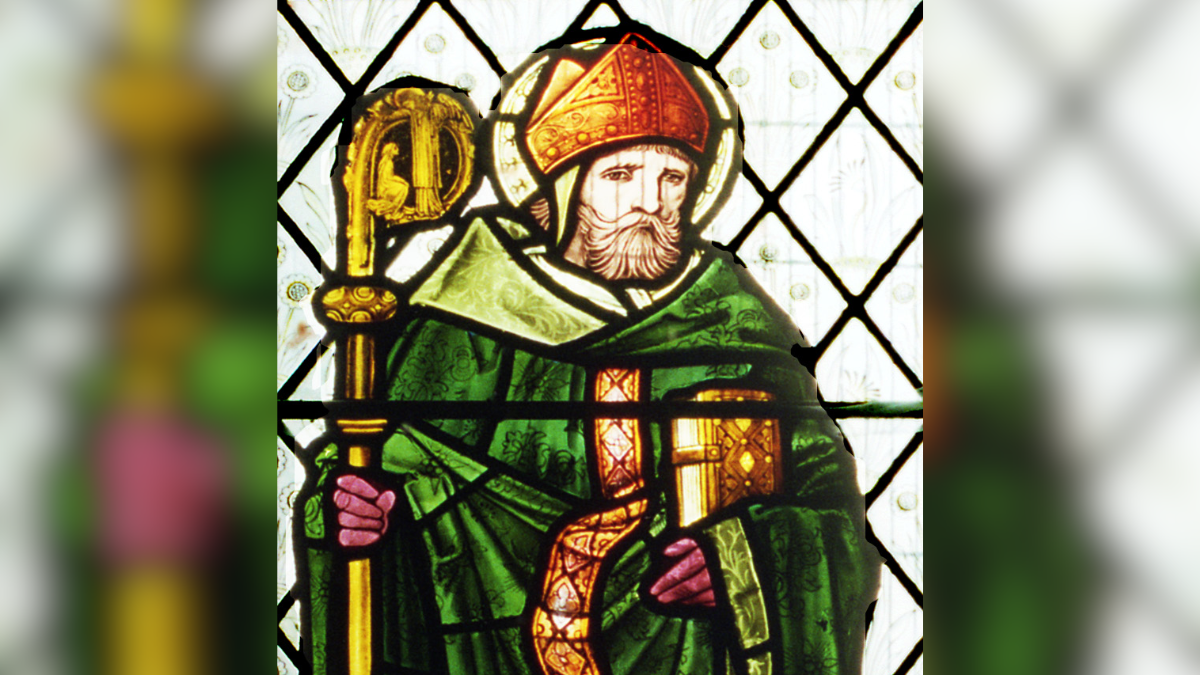

A Theologian and Scientist Who Influenced the English Reformers: Robert Grosseteste
How the great thinker revolutionized our understanding of Christ’s light in all knowledge.
10/9/23
John Stonestreet Glenn Sunshine

Today marks the 770th anniversary of the death of Robert Grosseteste who, though from a humble background, rose to importance as a church statesman, theologian, educator, and eventually bishop of Lincoln, England.
Among the few details known about Grosseteste’s education and early career is that he was educated in a cathedral school, possibly at Hereford. He showed such promise in the liberal arts, canon law, and medicine that, in 1192, he was recommended for a position with William de Vere, the bishop of Hereford for whom Grosseteste worked until de Vere’s death in 1198.
In 1225, Grosseteste was given a benefice in the diocese of Lincoln. In 1229, he became an archdeacon at Leicester and a canon of the cathedral at Lincoln. A serious illness in 1232 convinced him that God was angry that he held multiple offices, so he resigned his post as archdeacon and kept the job as canon.
Also in 1229, Grosseteste began teaching theology at the Franciscan convent in the relatively new University of Oxford. His teaching would become a major influence on Franciscan theology.
In 1235, Grosseteste was elected bishop, and he became heavily involved in ecclesiastical politics, particularly in combatting clerical corruption. In 1250, a conflict with the Archbishop of Canterbury, Boniface of Savoy, landed Grosseteste before Pope Innocent IV. Now at about 80, he lectured Innocent about problems in the Church and laid the blame squarely at the feet of the papacy.
Grosseteste’s most important work was as a theologian and teacher. His theological treatises and teaching shaped Franciscan thought and laid the foundation for theology at Oxford. His work on ecclesiology would be a major influence on the English Reformer John Wycliffe about a century after Grosseteste’s death.
If all of that wasn’t enough, Grosseteste also had a major impact on medieval science, specifically in developing an early version of the scientific method. He argued that when studying the natural world, one should begin with observations of particulars. Based on these observations, one formulates universal laws that govern the particulars. These laws can then be used to make predictions that can in turn be tested through observation. That methodology would continue to shape studies of the natural world into the seventeenth century and the beginnings of the scientific revolution. Grosseteste argued that because the natural sciences are based on mathematics, math is the highest of the sciences. This became a fundamental principle in medieval natural philosophy and carried over to the founders of modern science.
Following St. Augustine, Grosseteste argued that we only know truth through illumination. Just as we cannot see a body unless it has light shining on it, the mind cannot comprehend truth unless the divine light of the logos, Jesus Christ, illuminates it. Thus, all knowledge, for Christian and non-Christian alike, is mediated by Christ.
For Grosseteste, understanding light had much greater significance than its application to epistemology. Grosseteste’s entire cosmology as well as his understanding of the relationship between soul and body was built on light as the first element of creation.
With a particular interest in optics, he often worked with lenses, spherical glass bowls filled with water, and other tools to explore the behavior of light. In the process, he made significant advances in optics that soon led to the development of eyeglasses. Some scholars today even suggest that he had a very modern understanding of how color works, even centuries before Isaac Newton would demonstrate the visible spectrum in white light.
Grosseteste, in his work, married philosophical and theological reflection, mysticism, and observation and experimentation to produce the kind of highly integrated vision of the world so foreign to how we think today. His groundbreaking work in scientific methodology, in mathematizing natural philosophy, and the specific conclusions he reached about optics were important advancements that had a profound influence on theology and natural philosophy for the next several centuries.
Given today’s tendency toward overspecialized fields of academic study, Grosseteste’s vision that Christ mediates all knowledge is more relevant than ever.
This Breakpoint was co-authored by Dr. Glenn Sunshine. For more resources to live like a Christian in this cultural moment, go to breakpoint.org.
Have a Follow-up Question?
Related Content

© Copyright 2020, All Rights Reserved.














